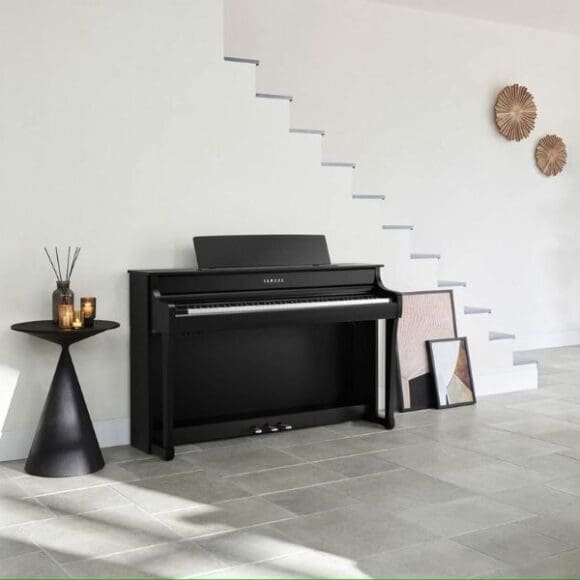Choosing a piano can be difficult. You need to consider the sound, your budget, the space in your home, and how it will look. Before you think about manufacturers like Yamaha, Kawai or Petrof, the important question is whether you want a digital piano or an acoustic piano. Many people will give you their opinion about which is better. It could seem overwhelming, but do not despair! Here are some suggestions to help you choose whether you should be focusing on a digital or acoustic piano in your search for the perfect instrument.
The first thing is that neither option is a ‘bad’ choice. There are many excellent models of acoustic pianos and digital pianos. Prices for both can span all budgets and include models which might be considered introductory through to advanced models. Do not believe anyone who makes blanket statements that digital or acoustic pianos are always better. It depends on what you are looking for.
One of the features of acoustic pianos that many players find desirable is the fact that the sound is created by a mechanical action, that of a hammer striking the strings, with the richness of the sound coming from the resonance and harmonics of the strings, soundboard and so on. Since the digital piano is merely recreating the sound of an acoustic piano, an acoustic piano will normally have a better natural tone than a digital piano, and the acoustic piano is likely to be much more sensitive to expressive playing. Of course, as you move up the range of digital pianos, the difference becomes far narrower, and a higher-end digital model could sound better than an introductory model acoustic piano. For example, the tonal quality and key response on reputable digital brands, like Kawai digital pianos, is very impressive. Digital pianos also tend to offer other sounds, which is ideal if you want a wider variety of sounds than a single piano voice, as well as having many other features.
Another factor is the size and weight. Upright acoustic pianos are significantly larger and heavier than digital pianos. This is not an issue if it is to be a feature of the room, and if you have the space. Grand acoustic pianos are even larger still. On the other hand, if space is limited or you are likely to move to a new house a lighter, smaller digital piano could be more suitable.
Another consideration is maintenance. Acoustic pianos require maintenance from time to time. For example, periodically they will need tuning professionally. Since they hold their tone for a long time, this is not a great expense, but it is something to factor into your choice. In contrast, digital pianos never need tuning. However, by the same token, an acoustic piano could outlast a digital piano because it can be serviced and repaired if a fault develops. A well-made and maintained acoustic piano could last for several generations.
Of course, the best way to choose the right piano is to try a few. Why not visit the Richard Lawson showroom? Our helpful and experienced team can help you to find what best suits your requirements and budget.
















 Reviews
Reviews